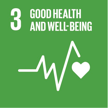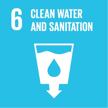About this project
In urban Kenya, 72% of childhood disease is linked with environmental conditions including faecal contamination of food and drinking water. The prevalence of diarrhoea among children below three years of age in Nairobi’s slums is 31%, almost double the prevalence present in the rest of Nairobi. (African Population and Health Research Center, 2012)
This has a huge negative impact on the youth in the slum as the water borne diseases unable them to go to school. We believe the youth has the future because they are still young and able to work on their careers. In addition, based on data, we believe that for young ladies’ life is most difficult in the slums, because they are not well supported by families to work, face violence, suffer from diarrhoea, and often end up in forced marriages because of their financial situation. Currently, most people in the slum do not treat water because alternatives as chemicals or boiling water with wood or charcoal is too expensive. Moreover, the WHO advises to stay hydrated during the current COVID-19 pandemic, because it ensures that the human immune system is strong and that the impact of the virus on the body can be diminished. Currently, in the neighbouring suburb a corona outbreak is happening, which raises the importance of this project.
Since 2008, Safe Spaces has been active in this slum, and has trained 50 young women on entrepreneurial skills in order to distribute products and generate an income. These women are active in groups and the learning centre of Safe Spaces gives them the possibility to be successful entrepreneurs and to have a place where they get education.
In this project, Safe Spaces collaborates with Basic Water Needs (BWN) and Trinity Credit. BWN is specialized in water filter solutions. Over the last 10 years, BWN has supplied water filters to more than 2,500,000 people worldwide. In this project, BWN provides an affordable drinking water solution, specifically designed for poor people in Africa, leading to a price of $0,002-$0,005 per litre safe drinking water without using electricity or chemicals. Based on water filter distribution experience of BWN, loans are necessary to reach poor people. In this project, Nairobi based Trinity Credit provides the possibility of purchasing water filters through loans, which allows potential clients to pay water filters over time, making the product and therefore safe drinking water more accessible for poor people and youth in the slum.
The entrepreneurship model in this project will ensure sustainability and feasibility. The idea is that the 50 (already) trained young ladies are receiving from BWN a training about the water filters which will include topics as: technical details, maintenance, marketing, and sales. Moreover, through selling water filters not only the ladies are able to generate income, also the implementing organizations, Safe Spaces, Trinity Credit, and BWN are able to generate revenue. This revenue will be used to invest in the project and train plus recruit more young ladies that can sell water filters, making safe drinking water accessible for everyone in Mathare slum.
Goals and Objectives
As the project needs to be completed by November 2020, we developed goals with an accompanying budget for a 4-month period/project completion. However, the project will continue having impact after 4 months, which is described in section ‘expected results’.
GOAL 1: The 50 young ladies can generate income by being water entrepreneurs through distributing water filters.
BWN and Trinity Credit will provide a training to the 50 young woman entrepreneurs which are managed by Safe Spaces. Based on experience from the partnering organizations, a training is very important for distributing a (new) product, whereby all questions of the participants can be answered. The training has as main objective that the ladies understand everything about the water filter, the loan systems, and are able to sell & market water filters with ongoing support from the implementing organizations. During the 3 hours training, the following aspects will be part of the training which are important for the water filter distribution: technical details, maintenance, marketing, and sales. Moreover, Trinity Credit will provide knowhow to the 50 young ladies about the loan system which will be implemented. The learning centre of Safe Spaces is large enough to train 50 ladies at a time, while keeping a minimum distance of 1,5m. During the training, every young woman will receive a water filter demo from BWN, which is necessary for selling filters. After the training, the ladies will be able to generate income through distributing water filters.
Budget:
-transport fare 50 young woman to the learning centre of Safe Spaces: 400 $
-training materials (pens, posters, marker pens, notebooks, etc.): 200 $
-snacks and thee: 150 $
-50 water filters demos for the young ladies (demonstration to clients) 1,750 $
-transport water filters to the learning centre of Safe Spaces: 100 $
-sales & marketing materials for the 50 young ladies: 350 $
-face masks for the 50 woman and the trainers, and other hygiene 200 $
measures (soap, handwashing station, gloves) at the learning centre
during the training
Total: 3,150 $.
Timeline Goal achieved: within 2 weeks after receiving budget
GOAL 2: 3,000 people with access to safe drinking water in Mathare slum
Based on distribution experience of BWN and product distribution data of Safe Spaces, every of the 50 young ladies will be able to sell a water filter to 10 households in 4 months. Meaning we can reach 500 families with safe drinking water. The average household size in Mathare slum is about 6 people, hence 3,000 slum dwellers will have access to safe drinking water. Moreover, for these people it will be easier to stay hydrated and therefore maintain a strong immune system, which is important according to the WHO during the COVID-19 pandemic.
Timeline Goal achieved: November, 2020
Expected result
First 4 months (project completion): in total 50 young ladies trained and generating income, 500 water filters distributed, and 3000 people with access to safe drinking water.
After:
8 months: in total 100 young ladies trained and generating income, 1000 water filters distributed, and 6000 people with access to safe drinking water.
12 months/ 1 year: in total 150 young ladies trained and generating income, 1500 water filters distributed, and 9000 people with access to safe drinking water.
24 months/2 years: in total 300 young ladies trained and generating income, 3000 water filters distributed, and 18000 people with access to safe drinking water.
48 months/3 years: in total 450 young ladies trained and generating income, 4500 water filters distributed, and 27000 people with access to safe drinking water.
60 months/4 years: in total 600 young ladies trained and generating income, 6000 water filters distributed, and 36000 people with access to safe drinking water.
This will grow further.
Log frame first 4 months (project completion)
GOAL: improved access to safe drinking water through income generating activates for youth woman Indicators: distribute successfully water filters Means of verification: receipts of water filters Risk/Assumption: the ladies apply the knowledge they learned during the training.
Objective 1: 3,000 people with access to safe drinking water within 4 months, Indicators: receipts of water filters indicating household size per client Means of verification: M & E team to call all clients to follow up about the functioning of the filter and to check the amount of people using the filter. Risk/Assumption: minimum of 6 people per household in Mathare slum
Objective 2: young ladies generate income through water filter distribution within 4 months Indicators: fixed commission per water filter, receipt includes the person calling. Means of verification: M & E team to check receipts which ladies did sell water filters and how many. Risk/Assumption: entrepreneurs do not spent money on transport (motorbikes, etc.) as they are selling in their living area.
Output 1: less water borne diseases among beneficiaries of water filters. Indicators: a lower 50% of water borne diseases among clients than the average in Mathare slum, and a lower 50 % of water borne diseases among clients after buying the filter. Means of verification: the entrepreneurs can do a questionnaire among beneficiaries and compare the numbers with the average numbers of Mathare slum/ with the situation before clients bought the filter. Risk/Assumption: beneficiaries do not admit they have or had a water borne disease out of shame.
Output 2: less water borne diseases among young woman entrepreneurs. Indicators: a lower 50 % of water borne diseases among entrepreneurs after started working and using the demo filter. Means of verification: the M&E team can do a questionnaire among the entrepreneurs. Risk/Assumption: entrepreneurs might do not admit they have or had a water borne disease out of shame. Activities 1: Training of 50 young woman entrepreneurs to prepare them to distribute filters, Indicators: etc. Means of verification: etc. Risk/Assumption: etc.
Activities 2: etc.
Sustainable Development Goals
About me / organisation
Allen C'Oredo / Peninah Nthenya Musyimi / Sijmen Johannes
Allen C'Oredo graduated from the University of Kenyatta with a BSc. Agribusiness Management and Trade. His love for research made him study Statistical Package for social science at the Institute of Advance Technology.
Sijmen Johannes holds a Master degree in International Land and Water Management at the Wageningen University & Research Centre. Providing safe drinking water for everyone drives him to work in Africa.


